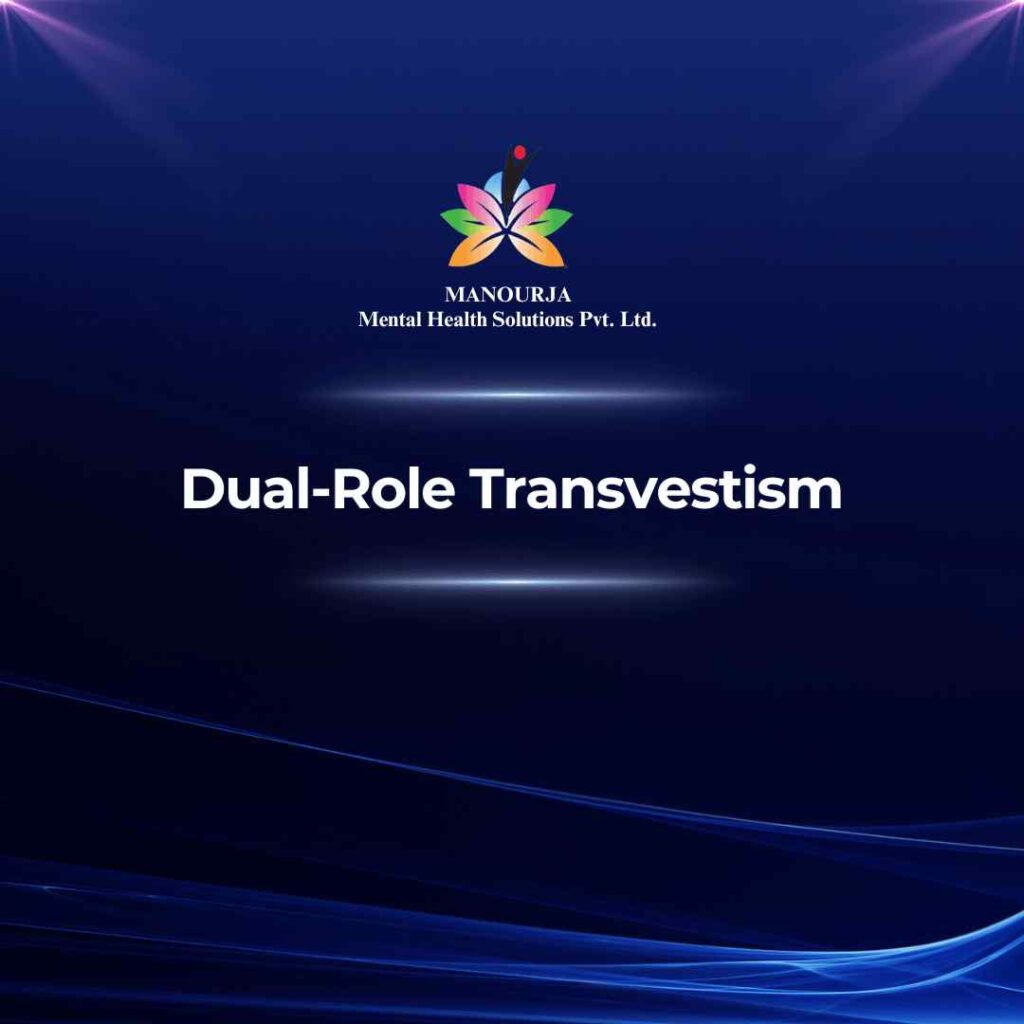Dual-Role Transvestism

Dual-role transvestism involves individuals occasionally wearing clothing traditionally associated with the opposite gender, primarily for purposes of self-expression or psychological comfort. This practice is distinct from transvestic fetishism, where cross-dressing is specifically for sexual arousal, and from gender dysphoria, where there’s a persistent discomfort with one’s gender assigned at birth accompanied by a desire to permanently transition.
Characteristics of Dual-role Transvestism
- Occasional Cross-dressing: Those who engage in dual-role transvestism typically cross-dress on a part-time or occasional basis.
- No Desire for Permanent Change: Unlike individuals who identify as transgender, dual-role transvestites do not usually intend to change their gender identity or live permanently in the role of the opposite gender.
- Multiple Gender Role Expression: This practice allows individuals to explore and express different facets of their identity that they feel are represented by clothing or roles typically associated with another gender.
- Lack of Associated Distress: In contrast to gender dysphoria, dual-role transvestism doesn’t typically involve significant psychological distress, although societal pressure or stigma can still pose challenges.
Forms of Dual-role Transvestism
Individual experiences with dual-role transvestism can vary widely. Some may choose to cross-dress in private, while others might do so at public events or social functions. The extent and context of cross-dressing are largely influenced by personal comfort levels and the acceptance of surrounding social environments.
Addressing Dual-role Transvestism
Since dual-role transvestism isn’t associated with distress or psychological dysfunction, it generally doesn’t require medical or therapeutic intervention. However, societal stigma or interpersonal issues may necessitate support:
- Psychotherapy: Useful for exploring personal identity, coping with societal challenges, and addressing any related emotional distress.
- Support Groups: Provides a community of individuals with similar experiences, which can help reduce feelings of isolation or misunderstanding.
- Educational Efforts: Raising awareness among family, friends, and communities about dual-role transvestism can help decrease stigma and foster acceptance.
Social Considerations
Navigating societal attitudes and potential discrimination is often a significant concern for those engaging in dual-role transvestism. Advocating for a safe, inclusive environment where people can freely express their gender without fear of judgment or harm is crucial. Respect and understanding from family, friends, and the broader community are important for the emotional well-being of those who practice dual-role transvestism.
Overall, dual-role transvestism is about personal expression and comfort with one’s identity. It doesn’t inherently involve the desire to change one’s gender identity permanently or derive sexual pleasure from cross-dressing. Thus, the focus should be on support and acceptance to enable individuals to express themselves freely and comfortably.
At MANOURJA, we believe in the transformative power of counseling. Our experienced therapists offer a safe and supportive space where you can explore your thoughts, emotions, and challenges. Through personalized counselling sessions, we’ll work together to develop coping strategies, build resilience, and achieve lasting positive change. Discover the path to a healthier, happier you with MANOURJA counselling services.
MANOURJA Rehabilitation Services
At MANOURJA, we’re dedicated to helping you in rebuild your life, after difficult times. Our rehabilitation services focus on understanding what you need to move forward, whether you’re recovering from addiction, trauma, or any psychological – social challenges. We create personalized plans, that are all about helping you, regain your strength and find hope again. With a caring team by your side, you’ll have the support to make real progress and take steps toward a brighter, healthier future.
